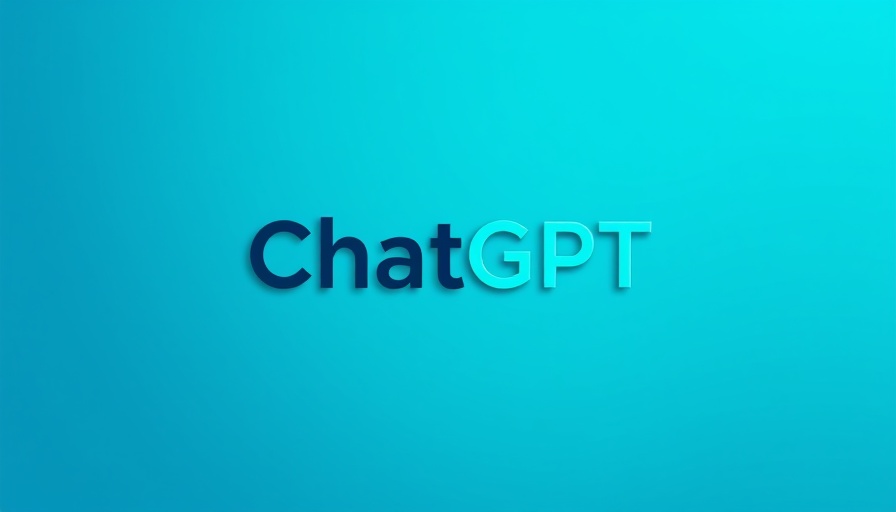
The Personal Touch: Why Customizing ChatGPT Matters
As artificial intelligence becomes an integral part of our daily lives, the ability to personalize interactions with AI tools like ChatGPT is reshaping user experiences. For business professionals, customizing ChatGPT can greatly enhance productivity and engagement, making it essential for tech-driven and marketing-centric industries.
How Personalization Works
ChatGPT allows users to share details such as their names, professions, or relevant personal information that can influence its responses. By telling the AI what traits to embody—like patience or understanding—users can effectively tailor the conversation to better meet their needs. Users are encouraged to save important facts and reference past interactions, creating a more cohesive and relatable experience.
The Power of Personalization in Business
For CEOs and marketing managers, the ability to customize AI can have profound implications. Personalized responses can reflect understanding of market trends specific to a sector, allowing for more insightful data analysis and strategic planning. For example, a marketing manager discussing customer engagement strategies can instruct ChatGPT to provide insights based on their previous meetings or ongoing campaigns, thereby enhancing the relevance of the recommendations offered.
Real-life Applications of AI Personalization
Imagine attending a business meeting where your AI assistant is equipped with details from your last project and knows your preferred decision-making strategies. Such coherence can be pivotal for driving discussions forward. Additionally, by sharing insights about team dynamics or client rapport, ChatGPT can offer tailor-made responses that address specific business challenges.
Future Trends: What Lies Ahead for AI Customization
Looking ahead, the trend towards personalizing AI tools will continue to evolve in 2025 and beyond. With advancements in natural language processing and user data analytics, we can expect AI systems to become even more intuitive. This may mean understanding your mood or adapting their communication style based on historical interactions. This progression will not only change how we communicate with technology but also redefine our approach to customer service and client relationships.
Challenges and Considerations
As beneficial as personalization can be, it also raises ethical questions. How much personal information should users share with AI? Data privacy and security remain major concerns, especially for professionals handling sensitive information. CEOs and marketing managers must be vigilant about these risks, ensuring that their AI tools comply with data protection regulations and safeguard user privacy.
Final Thoughts: Embrace Personalization
The ability to customize conversations with ChatGPT is not just a feature; it’s a game changer in the realm of AI interactions. For professionals in fast-paced, tech-driven environments, understanding and leveraging this capability can lead to meaningful improvements in productivity and communication. As the technology develops, embracing the personal touch may well become a standard practice in AI-powered business solutions.
 Add Row
Add Row  Add
Add 




 Add Row
Add Row  Add
Add 

Write A Comment